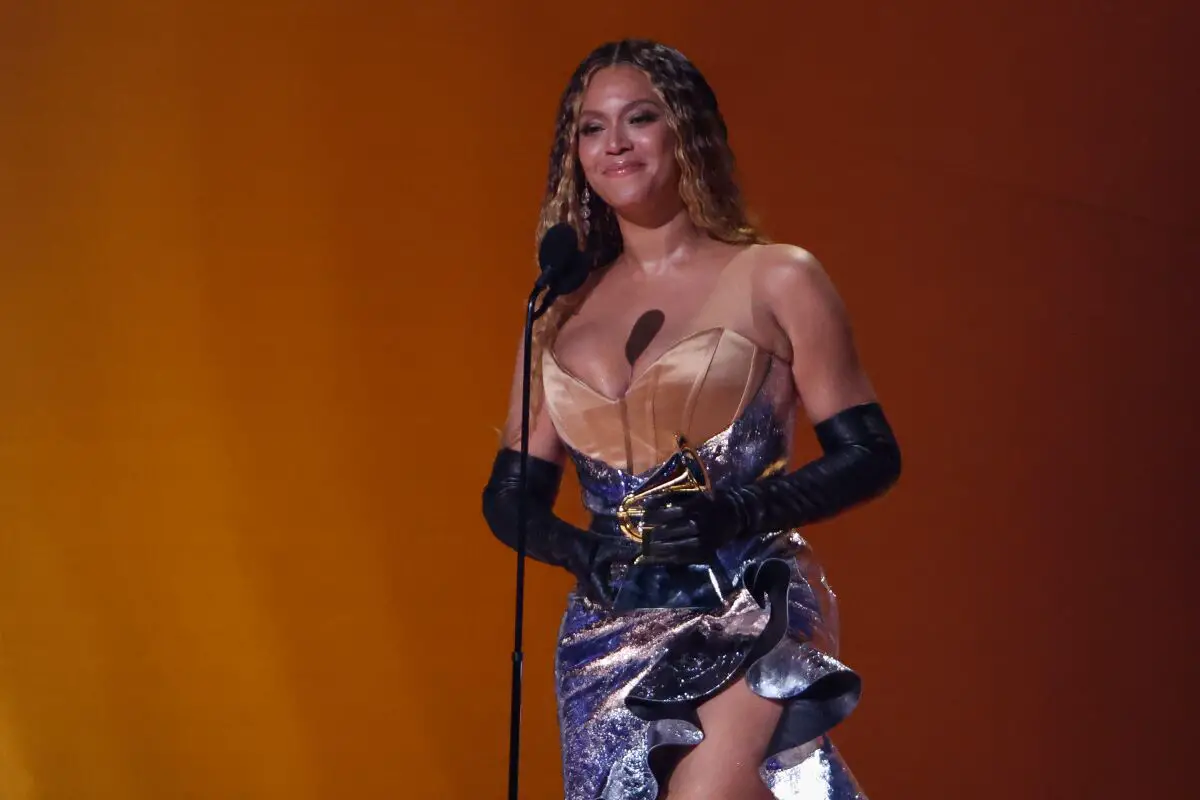Each year, the American entertainment industry honors artists with four major award ceremonies: the Emmy Awards for television, the Academy Awards (the “Oscars”) for film, the Recording Academy Awards (the “Grammys”) for music/audio and the Tony Awards for theater. Many Black women achieved historic wins this season. At the Tonys last June, Joaquina Kalukango and Phylicia Rashad won major acting awards. At the Emmys last September, major wins went to Zendaya, Sheryl Lee Ralph, “Lizzo’s Watch Out for the Big Grrrls,” “A Black Lady Sketch Show” and “Abbott Elementary.” Viola Davis won a Grammy in February for narrating her audiobook, “Finding Me,” granting her the coveted EGOT status. Lizzo also won record of the year for “About Damn Time.” At the Oscars in March, costume designer Ruth Carter won for her work on “Black Panther: Wakanda Forever,” making her the first Black woman in history to win multiple Oscars (she won the same award for “Black Panther” in 2019). Despite this success, Black female fans are still upset at some major snubs.
The most controversial slight this season happened at the Grammys, where Beyoncé’s “Renaissance” lost album of the year to “Harry’s House” by Harry Styles. During his acceptance speech, Styles commented, “this doesn’t happen to people like me very often.” As many fans pointed out on social media, that isn’t true. Styles is the 33rd white man to win this award in the Grammys’ 65-year history. Just over half of the winners have been white men. Despite myriad contributions to Western music, only three Black women have ever won album of the year, the last being Lauryn Hill for “The Miseducation of Lauryn Hill” in 1998. Many have been nominated, including Mariah Carey and Janelle Monae, but to no avail. Critics and fans predicted that Beyoncé would break this 25-year streak with “Renaissance.” The songstress took home four awards that night, making her the most-awarded artist in Grammy history with 32 wins. However, Beyoncé has lost Album of the Year four times.
Beyoncé is frequently lauded as the greatest artist, singer and performer of our time. Last year, Billboard named her “the greatest pop star of the 21st century“due to her ability to adapt to different genres, create trends and maintain popularity. “Renaissance” garnered stellar reviews from The Guardian, NME and Rolling Stone. Pitchfork praised the record glowingly, even calling it the best album of the year. The publication was more critical of “Harry’s House,” stating that it “lacks substance.” Music taste is obviously subjective. Harry Styles has achieved massive chart success and his fans are proud of his win, but this doesn’t change the fact that a white man with only three solo albums can win the Grammy’s most prestigious award, while a Black woman with over 25 years in the industry has not received that same recognition. “Honestly at this point, Beyoncé should boycott the Grammys [because] the past years [have] been incredibly insulting,” one fan asserted on Twitter. “Beyoncé represents every Black woman that is constantly applauded for their work but when it comes to promotion time their white colleague gets it instead,” said another. Whether you’re part of the BeyHive or not, it’s evident that this loss represents the systemic erasure of Black women’s accomplishments.
There was a larger dearth of acknowledgment at the Oscars. Angela Bassett was up for best supporting actress for her role as Queen Ramonda in “Black Panther: Wakanda Forever,” losing to Jamie Lee Curtis, who played Deirdre Beaubeirdre in “Everything Everywhere All at Once.” While Black artists received notable nominations and wins in the other big three ceremonies this year, Bassett was the only Black female artist nominated for any major awards. No Black women or Black-led films were nominated for best lead Actress, best director, best picture, best original screenplay or best adapted screenplay. In fact, “Everything Everywhere All at Once” was the only film nominated for those major awards that even featured a cast comprised of actors of color (If you want to get technical, “Avatar: The Way of Water” was nominated for best picture and…blue is a color.). Sadly, this is a tradition: Halle Berry is the only Black woman in the Academy’s 95-year history to win best lead actress.
The Academy completely ignored the two largest Black-woman-led films of 2022. “The Woman King” is a historical drama/action film chronicling the beginning of the slave trade in the West African Kingdom of Dahomey. Director Gina Prince-Bythewood deftly integrates trauma and triumph, and lead actresses Viola Davis and Thuso Mbedu imbue the film with heart. “Till,” directed by Chinoye Chukwu, tells the tragic tale of Emmett Till and stars Danielle Deadwhyler as Mamie Till, the deceased boy’s mother. Both films were distributed by major studios and received positive critical reviews, yet got little attention at the SAG Awards and the BAFTAs. The Academy didn’t nominate them at all. In an anonymous interview with Entertainment Weekly, one Academy member responded to the backlash:
“When they get in trouble for not giving Viola Davis an award, it’s like, no, sweetheart, you didn’t deserve it. We voted, and we voted for the five we thought were best. It’s not fair for you to start suddenly beating a frying pan and say [they’re] ignoring Black people. They’re really not, they’re making an effort. Maybe there was a time 10 years ago when they were, but they have … been in the forefront of wanting to be inclusive. Viola Davis and the lady director [Gina Prince-Bythewood] need to sit down, shut up, and relax. You didn’t get a nomination — a lot of movies don’t get nominations.”
With people like this in the voting group, it’s no wonder that the Academy hasn’t progressed much since #OscarsSoWhite. This commentary is especially hurtful considering the web of nepotistic industry connections and the fervent public relations campaign that secured Angela Riseborough’s Best Lead Actress nomination. It’s clear that merit isn’t all it takes to get nominated for white actresses. But for Black women, individual biases foment a culture of exclusion in the entire awards ecosystem.
However, these snubs don’t mean that the big four awards aren’t important. For upcoming artists like 23-year-old Samara Joy, they mean the world. She won Best New Artist and Best Jazz Album for her sophomore LP “Linger Awhile” at the Grammys. This cemented her stratospheric rise, which includes a US tour and a deal with Verve Records. The Tony Awards has awarded Black women in major categories in the past, so when the 2023 nominations drop on May 9, I hope they will continue to do so. These wins do not negate the entertainment industry’s biases, but instead demonstrate how important awards can be for an artist’s career. For this reason, the Oscars and Grammys have some serious work to do to improve the representation and recognition of Black women.

















